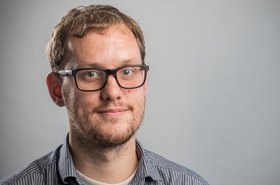Reversible computing startup Vaire Computing has raised $4 million in a seed round.
Led by 7percent Ventures and Heyzap co-founder Jude Gomila, it brings the total raised by the company to $4.5 million.
Founded in 2021 and based in London in the UK and Seattle, Washington in the US, the startup is developing a 'reversible computing' chip. In an interview with TechCrunch, co-founder and CEO Rodolfo Rosini said that Vaire hopes to use the funds to develop a proof of concept but would need a much larger funding round to actually build the chip.
At its most basic level, reversible computing aims to reduce the waste heat generated by traditional processors.
When chips execute operations, the compute power needed generates waste heat – because energy cannot be created or destroyed, an input that receives two units of bit-energy uses one unit of bit-energy to perform the output and then loses the second bit-unit in the form of heat.
As processors are tasked with performing higher-density workloads, the waste heat being generated is also increasing, hence the need for air and liquid cooling solutions in data centers.
Reversible computing chips have the same number of inputs as outputs, meaning no bits are lost, thus removing the need for excess energy to be removed in the form of heat.
“Close to 100 percent of the energy in a chip ends up being dissipated as heat. So you’re basically wasting it. But in a reversible chip, you actually never dissipate this energy. You don’t allow the energy to become heat, and you recycle it internally,” said Rosini in the TechCrunch interview.
“This means that two things happen: One, the chip doesn’t get hot, and two, you only need a tiny amount of energy to make it work. So, it uses almost no energy, other than the same amount of energy that it has just recycled,” he said.
Although the concept was first highlighted by IBM in 1961, Rosini told TechCrunch that funding for the technology is incredibly low, with investments instead going towards quantum computing, photonics, and GPUs.
In the same interview, Vaire’s other co-founder, CTO and former Cambridge University researcher Hannah Earley, said that she believes reversible computing could help to deliver the most powerful computers, having become interested in “unconventional computing” while completing her PhD.
In April 2024, Vaire was one of 10 UK-based companies selected for the Spring Cohort of Intel’s Ignite startup accelerator program.







